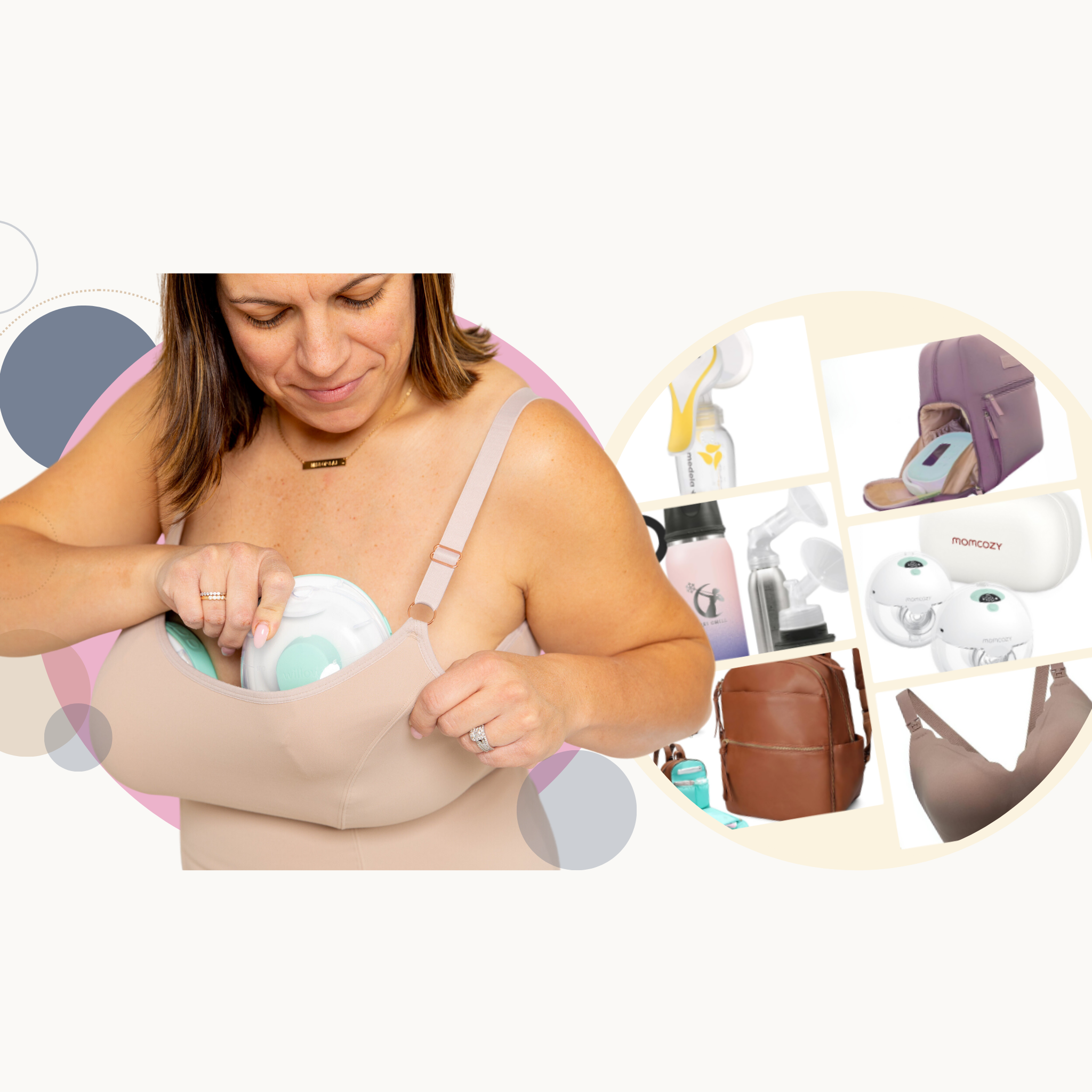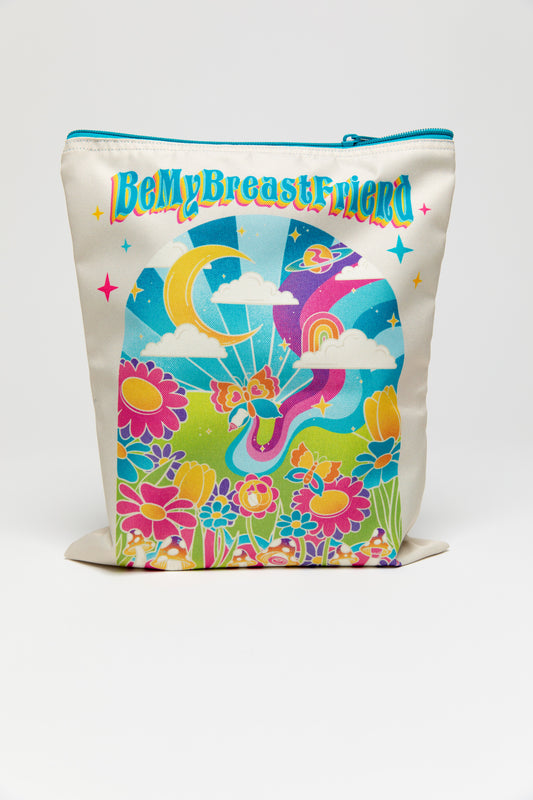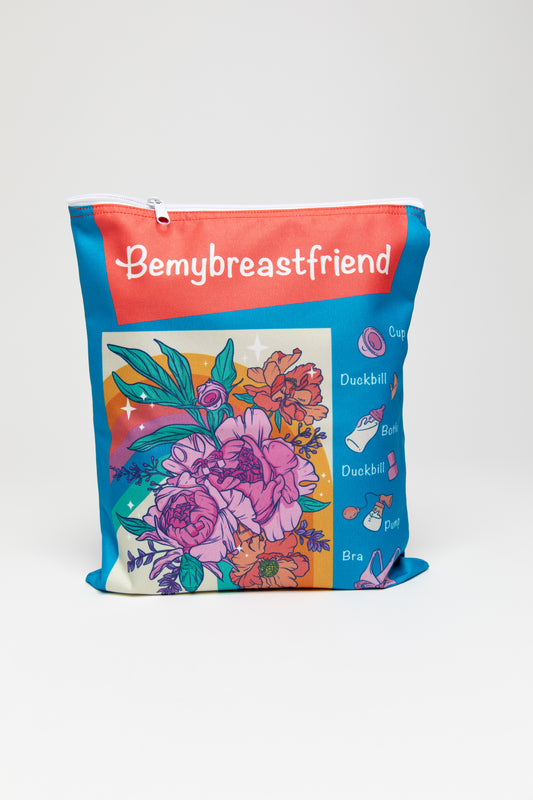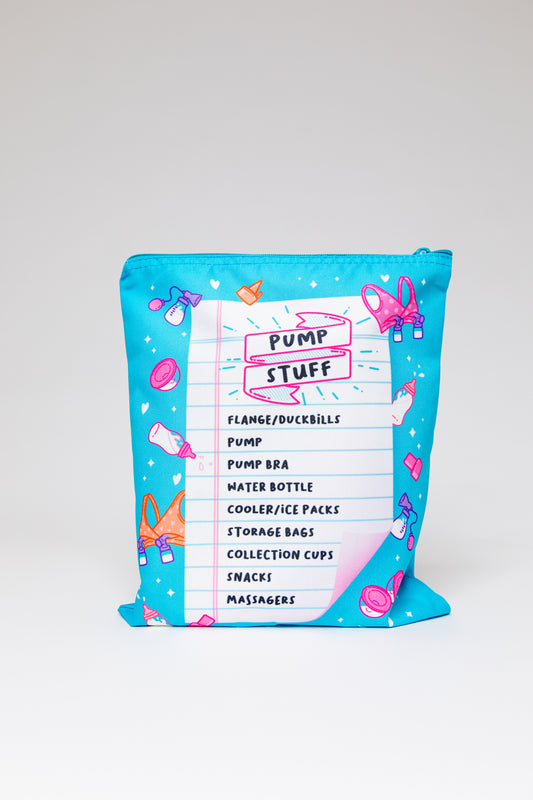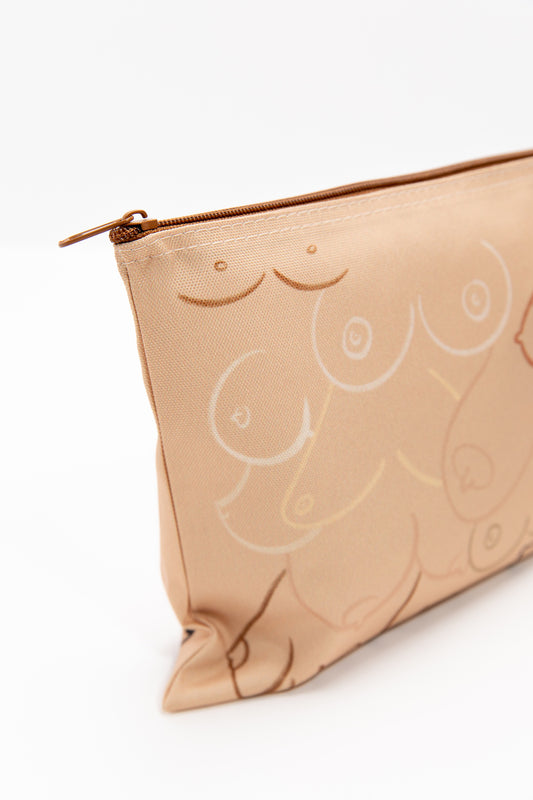
After 9 months, you are finally able to cradle your sweet baby in your arms, see your baby’s lovely face, and no longer worry about all the restrictions that accompany pregnancy. With baby in your arms, mom can have the occasional drink! Before becoming too nervous about enjoying that glass of wine, cracking open that pint, or mixing that cocktail, it is key to know the boundaries of drinking and breastfeeding. Knowledge is power, and as always, moderation will be key. Let’s take a moment to consider more deeply whether alcohol consumption is truly safe while feeding at the breast or pumping milk.
So, let’s sip on the facts.
ALCOHOL & BREASTFEEDING
You are likely familiar with pregnancy’s no alcohol rule, but what about when you are feeding at the breast or pumping? Like most "mommy topics" - there are a lot of mixed opinions and, let's just say it, false information out there about alcohol and breastfeeding. Let's talk about it!
ALCOHOL EXPOSURE IN BREASTMILK
While you are breastfeeding, you are free to consume alcohol. Breastmilk alcohol levels will closely parallel blood alcohol levels. This means that when alcohol is consumed, it will reach its peak in your breastmilk around the same time it peaks in your blood. Typically, this is around 30 minutes to 1 hour after consumption. Of course, things like weight, food consumption, and body fat percentage will contribute to the peaking time. It can vary a bit from person to person (or even day to day), but 30-60 minutes is a good rule of thumb. In general, less than 2% of the alcohol dose consumed reaches the breastmilk.
TIP: Some women who desire an alcoholic beverage will choose to drink alcohol while they are nursing baby at the breast or while they are pumping. This is the best way to get in that next feeding while ensuring the lowest amount of alcohol present in breastmilk.
ALCOHOL AND MILK PRODUCTION
There are pros and cons to every choice though, and the consideration of both will allow you to make the most informed decision on whether you want to drink or not. Research suggests there are potential benefits to consuming moderate amounts of some forms of alcohol. The barley found in beer has been shown to boost the production of prolactin (the hormone responsible for producing your milk supply).
This benefit may come at a cost though. Alternative studies have shown that, while there is this boost of prolactin, alcohol’s reduction of oxytocin can impact the amount of milk that is expressed. The combination of reduced oxytocin and increased prolactin can result in a significant delay in your milk ejection reflex, which can then potentially lead to a temporary decrease in milk production.
Here's the good news...
This delay in milk letdown doesn't typically occur after a single drink. In fact, it's unlikely you'll see any negative impact to your breastmilk production after one drink. In most cases, alcohol decreases milk production after consuming five or more drinks. As long as you are not heavy drinking, you don't need to worry about producing less breast milk.
Additional Tips:
- Keep it moderate. The occasional drink or two is rarely a problem, but you may not want to go overboard.
- Be sure to continue drinking water in between alcoholic beverages.
- Consume alcohol alongside food to lessen the impact on blood (and breastmilk) alcohol concentration.
PUMPING & DUMPING
Did you know that “pumping and dumping” is rarely necessary? It's true! Previously, the thought was that when the lactating mother consumes alcohol, the alcohol is “stored” in the breastmilk. This would then require the mother to “pump and dump” the milk so that her baby would not be at risk of experiencing any of the negative consequences of consumption of alcohol.
However, it doesn't actually work this way.
Alcohol isn't "stored" permanently in the mother's milk, just waiting for baby's next feeding. The alcohol level in breastmilk correlates closely with the blood alcohol level. As the concentration of alcohol in your blood increases, so do the levels of alcohol in your breastmilk.
On the flip side, as the blood alcohol content decreases so does the alcohol content in breastmilk. Depending on how much alcohol you've consumed, you may want to delay breastfeeding or pumping for an hour or two while your milk alcohol levels come back down. In other words, you do not need to worry about getting rid of “alcoholic milk”, your body will do it naturally.
That being said...
You may find yourself wanting to pump and dump if your breasts are becoming too full or you are experiencing discomfort shortly after you have drank. In that case, you will not want to keep the milk to feed because there may be traces of alcohol. This though will help you maintain your own comfort without becoming nervous about leaking, and it may help combat the potential dip in supply we previously covered. You can save this milk for other uses such as milk baths, topical remedies or milk jewelry!
CHOOSING NOT TO DRINK
Happy hour is never obligatory. If you do not want to drink, don’t! You do what is best for you and your family; you do not have to justify your choice to anyone. So many fantastic non-alcoholic drinks can be just as refreshing on a hot, summer day or a cozy, wintery night. There is no need for you to feel pressure to drink when you prefer not to.
In recent years non-alcohol beer, wine, and hard alcohol options have taken off! Whether you are pregnant, breastfeeding, or simply embracing an alcohol-free lifestyle, the options seem to be endless nowadays!
Here are my personal favorite "non-alcoholic" drink options:
- Stella Rosa Black
- Fre Sparkling Brut
- French Bloom
- Stella Rosa Peach
- Surely Rosé
- Surely Brut
- Alternativa 0.0
Use this knowledge of alcohol and breastfeeding/ pumping to bring you freedom and allow you to make the best choice for you and your baby! 🍻 Cheers!
REFERENCES:
Haastrup, Maija Bruun, et al. “Alcohol and Breastfeeding.” Basic & Clinical Pharmacology & Toxicology, vol. 114, no. 2, 2013, pp. 168–173., https://doi.org/10.1111/bcpt.12149.
Mennella, J. A. (2001). Regulation of milk intake after exposure to alcohol in mothers’ milk. Alcoholism: Clinical and Experimental Research 25(4) pp. 590-593.
Mennella, J. A. (2001). Regulation of milk intake after exposure to alcohol in mothers’ milk. Alcoholism: Clinical and Experimental Research 25(4) pp. 590-593.
Alcohol - Drugs and Lactation Database (Lactmed) - NCBI Bookshelf. https://www.ncbi.nlm.nih.gov/books/NBK501469/
“Alcohol' s Effect on Lactation.” National Institute on Alcohol Abuse and Alcoholism, U.S. Department of Health and Human Services


